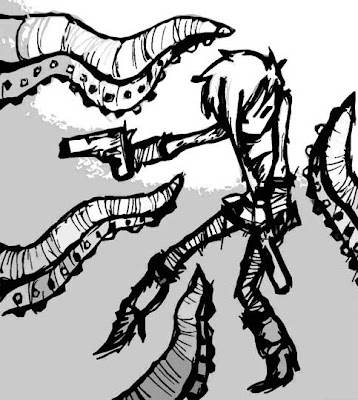The Commish
A.k.a. the commission, the cut, the finder's fee, the token, the 'little extra', the piece of the pie.
When do you expect it? When do you get it? When do you give it?
First thing's first, the Commish doesn't come easy to the excruciatingly shy person. But commissions are essentials to Freelancing Survival. You see, the commission is money you earn simply by giving a client's project to a someone else. Maybe because you're already loaded, because the client is from hell, or because you simply want to help. That's it. Then, you bail out. No skin off your shin.
If you have a nagging guilt trip about getting something out of nothing, this little earning method might not be for you.
Anyhoo...
You can expect it when you pass on a project to a friend. If it's a huge project and your friend is feeling generous, he can give you a 10 to 20% cut on the project's payday, no questions asked. He can say it upfront. Or he can surprise you with a check when you least expect it. The commission here is treated more like a thank you card. A nice gesture for a nice gesture. If it's a rock-bottom, small project... just walk away.
You can get it when you demand it at the very minute you tell your friend you have a project for him. This requires thick-skinned magic. If you're willing to go the distance of thick-skinned magic, you can even name your price. With his back against the wall, your friend has no choice but to oblige. The commission here comes in the guise of a business deal between friends. A payment for passing, if you must.
On the flipside, you can give it, too. When the tables are turned and you receive a project from a friend, you can offer him a meager percentage of the collected dough. Keep in mind that your friend did 'sell' you to his client and sacrificed the project that could've been his. You have every right to be grateful. Tip: Find out how much the budget is first before talking exact figures.
Remember, relationship is the core of the commish. It may come off as tactful or tactless. Tread carefully. Make sure that when you get rid of a project, you're not getting rid of a friend, too.
When do you expect it? When do you get it? When do you give it?
First thing's first, the Commish doesn't come easy to the excruciatingly shy person. But commissions are essentials to Freelancing Survival. You see, the commission is money you earn simply by giving a client's project to a someone else. Maybe because you're already loaded, because the client is from hell, or because you simply want to help. That's it. Then, you bail out. No skin off your shin.
If you have a nagging guilt trip about getting something out of nothing, this little earning method might not be for you.
Anyhoo...
You can expect it when you pass on a project to a friend. If it's a huge project and your friend is feeling generous, he can give you a 10 to 20% cut on the project's payday, no questions asked. He can say it upfront. Or he can surprise you with a check when you least expect it. The commission here is treated more like a thank you card. A nice gesture for a nice gesture. If it's a rock-bottom, small project... just walk away.
You can get it when you demand it at the very minute you tell your friend you have a project for him. This requires thick-skinned magic. If you're willing to go the distance of thick-skinned magic, you can even name your price. With his back against the wall, your friend has no choice but to oblige. The commission here comes in the guise of a business deal between friends. A payment for passing, if you must.
On the flipside, you can give it, too. When the tables are turned and you receive a project from a friend, you can offer him a meager percentage of the collected dough. Keep in mind that your friend did 'sell' you to his client and sacrificed the project that could've been his. You have every right to be grateful. Tip: Find out how much the budget is first before talking exact figures.
Remember, relationship is the core of the commish. It may come off as tactful or tactless. Tread carefully. Make sure that when you get rid of a project, you're not getting rid of a friend, too.



Comments
Post a Comment